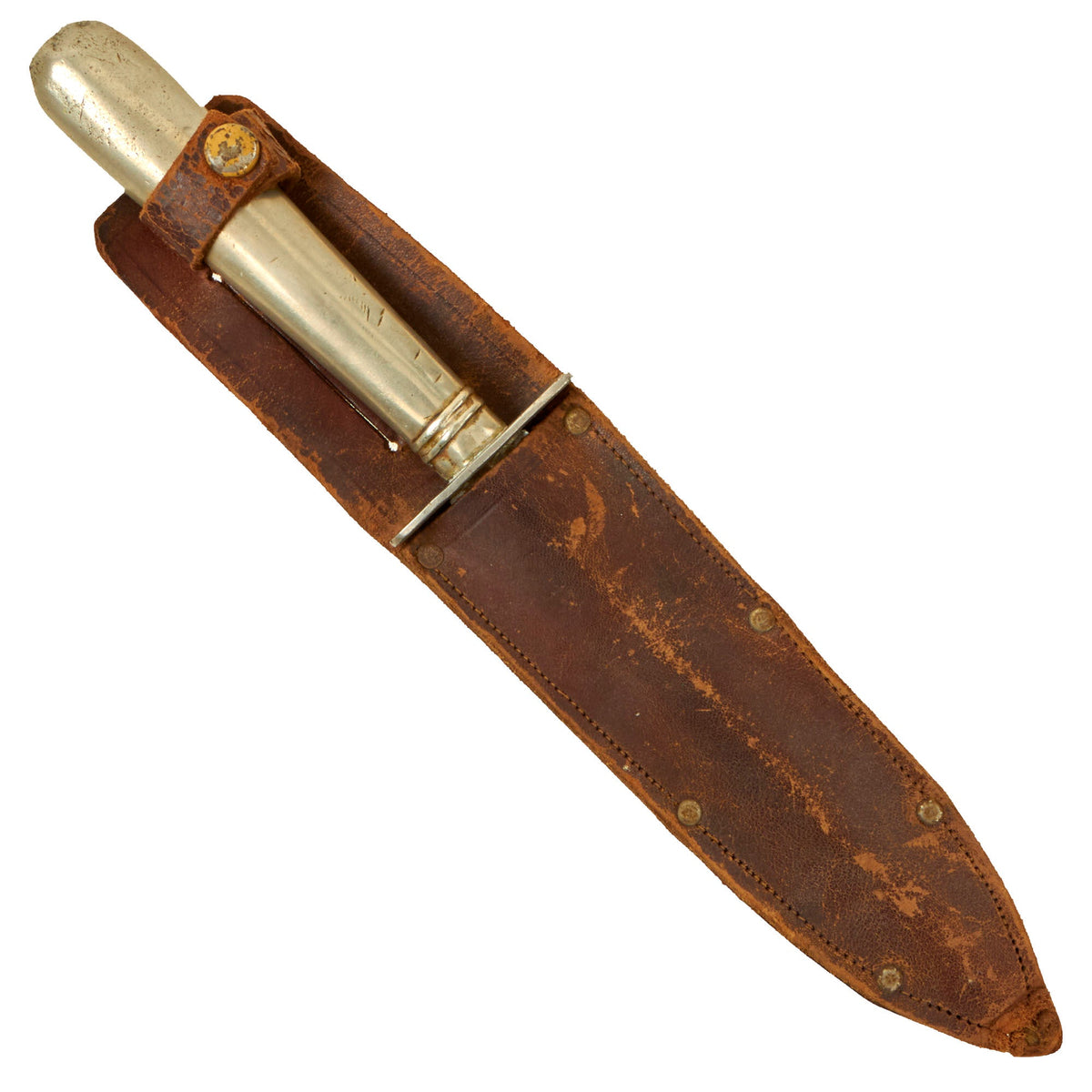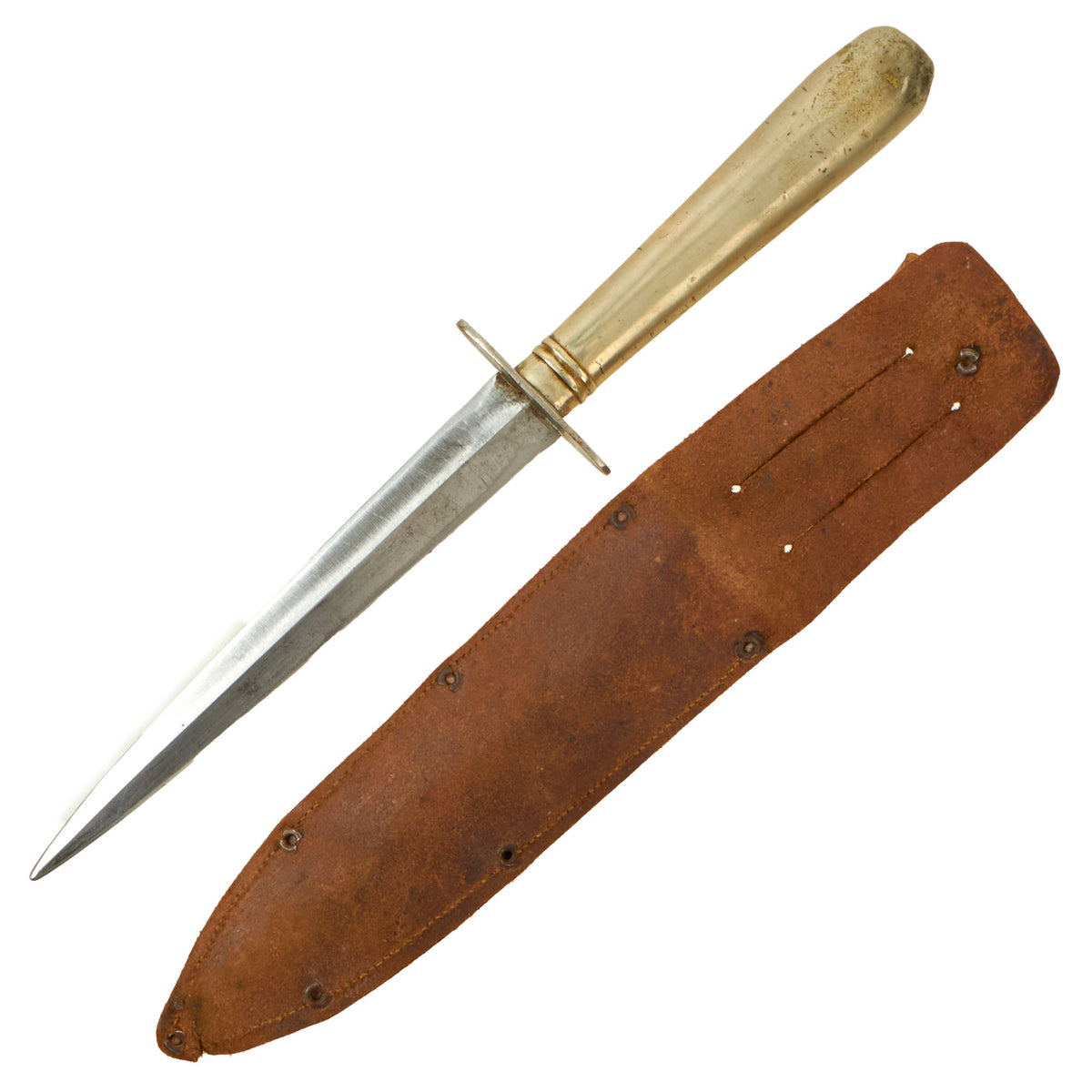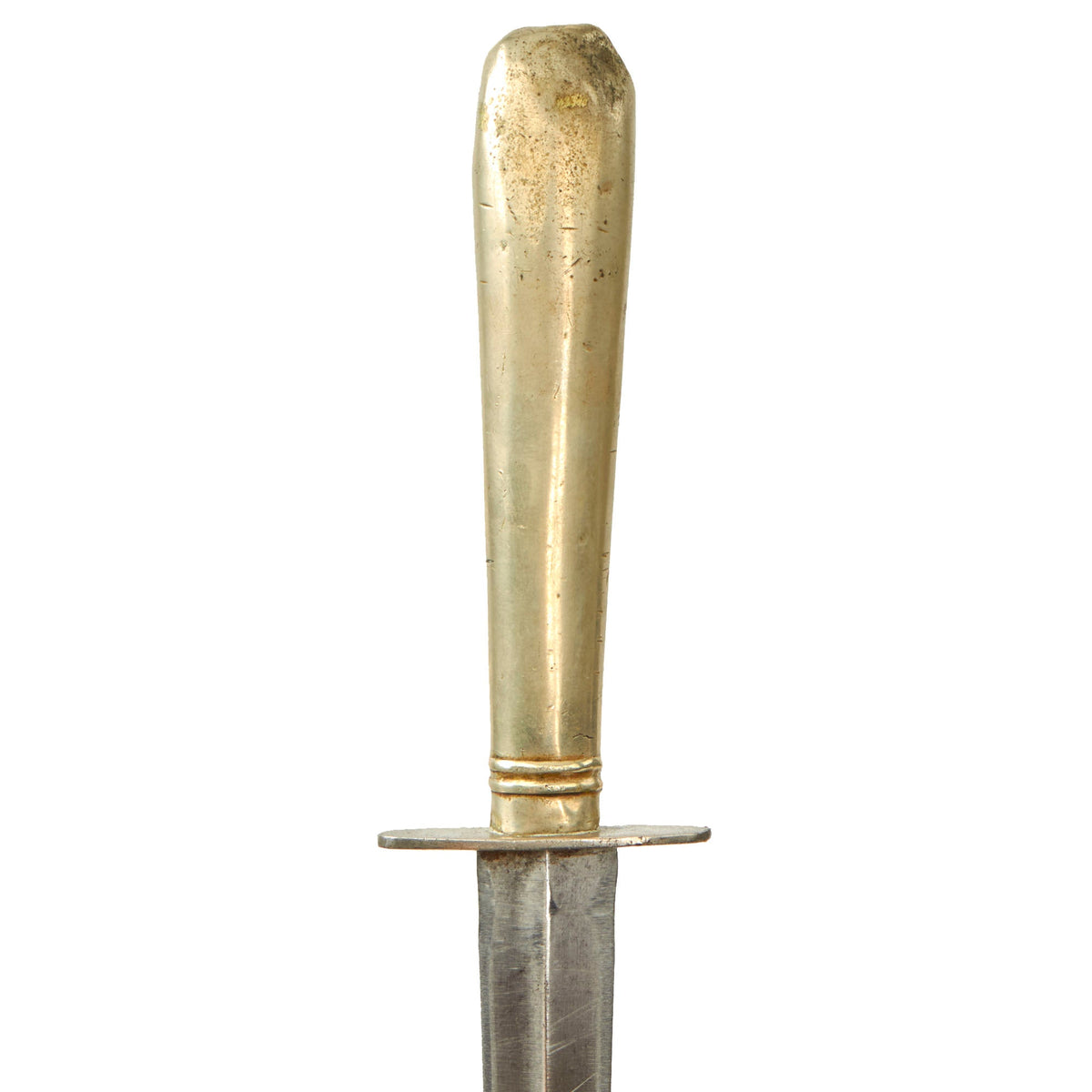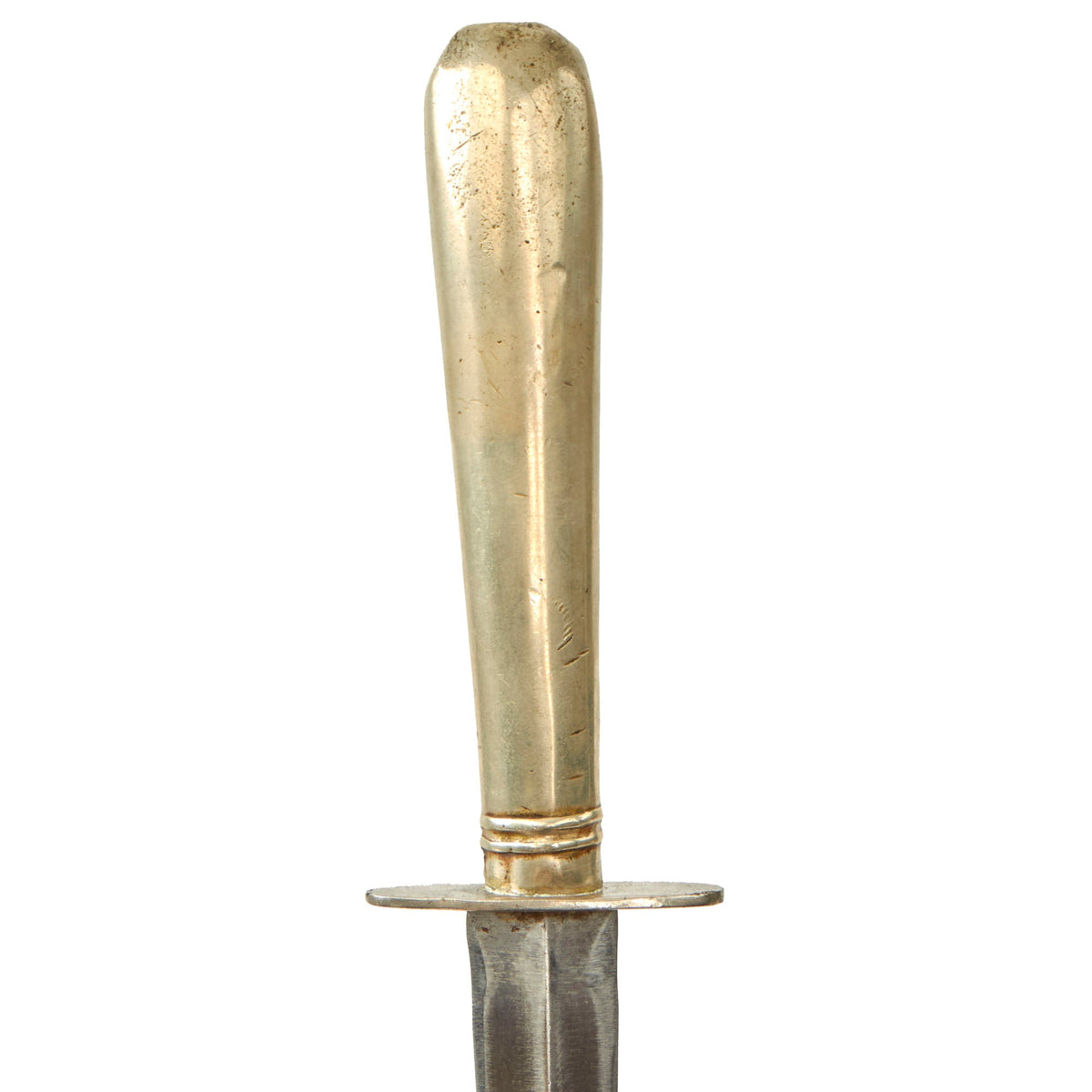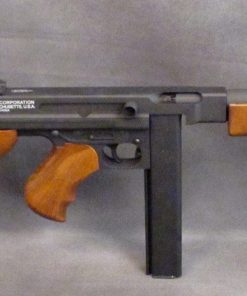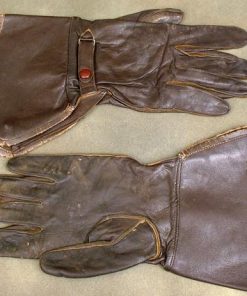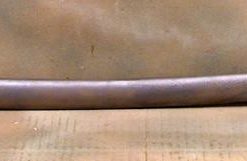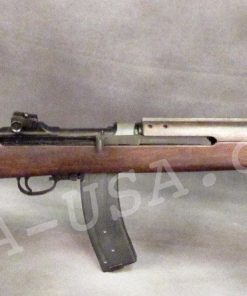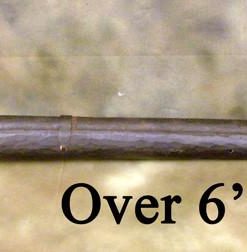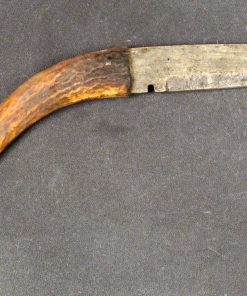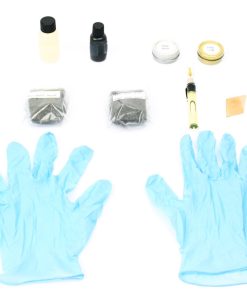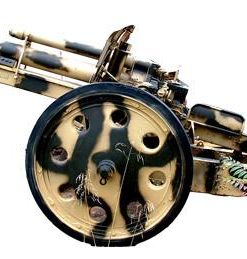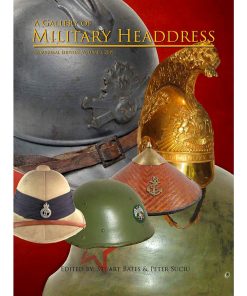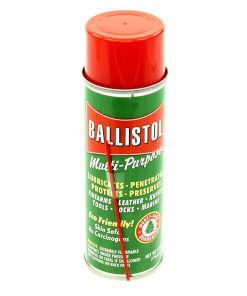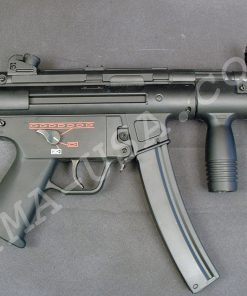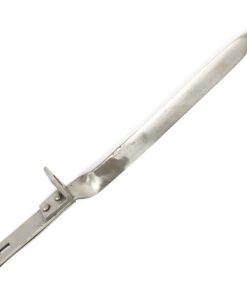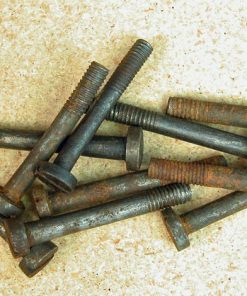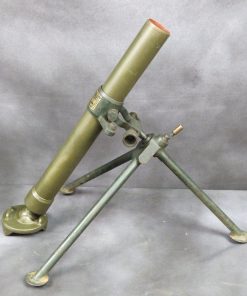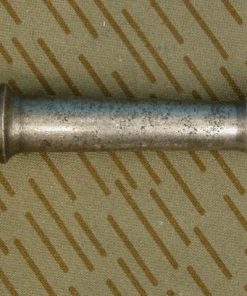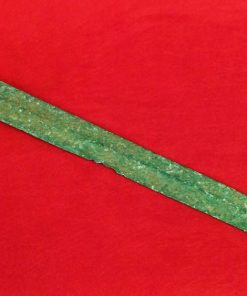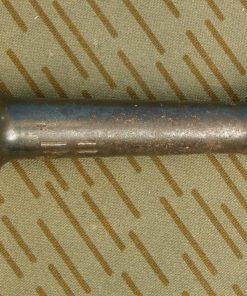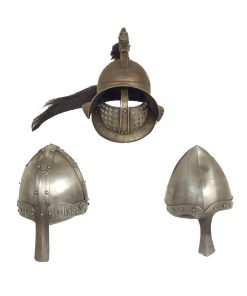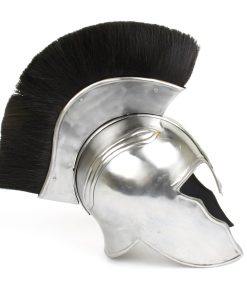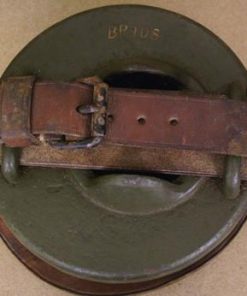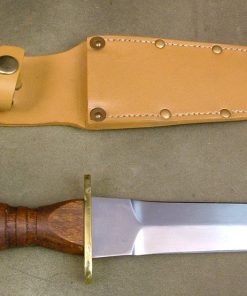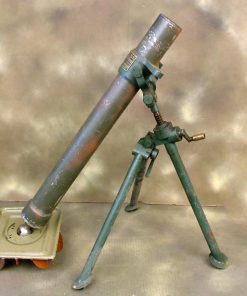Original British WWII Fairbairn-Sykes Private Purchase Commando Style Dagger Fighting Knife with Leather Sheath Original Items
$ 395,00 $ 118,50
Original Item. Only One Available. This is a gorgeous private purchase example of the famous Fairbairn-Sykes commando style dagger, which appears to be a niche example with a similar color across the knife. The hilt appears to be German silver, and the leather sheath is marked MADE IN SHEFFIELD ENG.
This is one of the most interesting F-S daggers we have come across. The crossguard is nickel-plated brass, and the hilt is German silver, as can be ascertained from the tarnish. The leather sheath is marked as shown and the leather is in fair condition with some damage. The blade shows heavy use, meaning any markings it once had have faded away from use and time. The hilt has several scuffs and dents at the bottom as shown. This is a very beautiful and unique F-S knife, the first we have come across in this configuration.
An increasingly hard to find knife that would fit into any British WWII collection.
Dimensions:
Blade length: 7”
Blade Style: Spear Point Knife
Overall length: 11 5/8”
Crossguard: 2”
Sheath: 10⅞”
History of the FS British commando dagger:
The demand for a good fighting knife was so very urgent that a meeting was arranged in November 1940 between W. E. Fairbairn, E. A. Sykes and Jack Wilkinson Latham at Wilkinson Sword Company. Fairbairn and Sykes described the type of knife they envisioned and the purpose for which it was intended. As discussion continued, preliminary sketches were drawn up and modified time and time again.
As Robert Wilkinson Latham tells it: ‘In order to explain exactly their point, the two men rose to their feet and one, it was Fairbairn my grandfather mentioned, grabbed the wood ruler from his desk and the two men danced around the office in mock combat’.
The very first 1st Pattern F-S Fighting Knives were made in November 1940. In January 1941the full war full production started, according to Robert Wilkinson Latham. The grip was made from solid brass and cut by 16 lines per inch in a diamond pattern. The grip and hand guard were nickel plated. The hand guard was curved to S-shape. The blade was grounded by hand. For this reason it is difficult to find two blades of exactly the same size and shape. This model was produced in very limited numbers.
The 1st Pattern was delivered from November 1940 until April 1941. On the 17th of December, 1940, 5000 hunting knives were ordered. This order concerned the first 1st Pattern knives. Price for each was 13s 6d. All together 6,779 1st patterns were made according to Robert Wilkinson Latham.
Fast Shipping with Professional Packaging
Thanks to our longstanding association with UPS FedEx DHL, and other major international carriers, we are able to provide a range of shipping options. Our warehouse staff is expertly trained and will wrap your products according to our exact and precise specifications. Prior to shipping, your goods will be thoroughly examined and securely secured. We ship to thousands clients each day across multiple countries. This shows how we're dedicated to be the largest retailer on the internet. Warehouses and distribution centres can be located throughout Europe as well as the USA.
Note: Orders with more than one item will be assigned a processing date depending on the item.
Before shipping before shipping, we'll conduct a thorough inspection of the items you have ordered. Today, the majority of orders will be delivered within 48 hours. The delivery time will be between 3-7 days.
Returns
The stock is dynamic and we cannot completely manage it because multiple stakeholders are involved, including our factory and warehouse. So the actual stock may alter at any time. It's possible that you may not receive your order once the order has been made.
Our policy is valid for a period of 30 days. If you don't receive the product within 30 days, we are not able to issue a refund or an exchange.
You can only return an item if it is unused and in the same state as the day you received it. You must have the item in its original packaging.
Related products
Uncategorized
Uncategorized
Angolan Rebel 1970s era 60mm Inert Display Mortar from Angolan Civil War Original Items
Uncategorized
Australian WWII Owen MK1 Machine Carbine SMG Custom Fabricated Replica with Sling Original Items
Uncategorized
Uncategorized
Uncategorized
Band of Brothers ORIGINAL GERMAN WWII Le. F.H. 18 10.5cm ARTILLERY PIECE Original Items
Uncategorized
Uncategorized
Uncategorized
Uncategorized
Uncategorized
Uncategorized
Uncategorized
Uncategorized
Uncategorized
Uncategorized
Uncategorized
Uncategorized
Uncategorized

